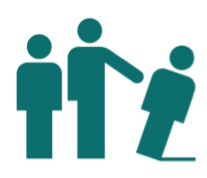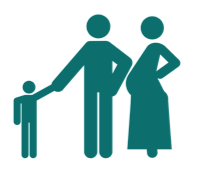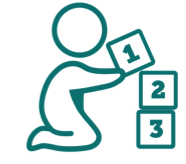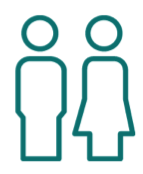Reducing the spread of HIV and improving care and treatment for people living with HIV and AIDS requires strategies that address social factors, beliefs and behaviours that put people at risk. LISAP defines behavioural strategies as those that attempt to delay onset of first intercourse, decrease the number of sexual partners, provide counseling and testing for HIV and STIs and encourage adherence to treatment strategies. Behavioural strategies to accomplish these goals will focus on individuals, couples, families, peer groups as well as entire communities.
LISAP has chosen 7 key priority areas to focus on over the next 5 years:
 |
Stigma & Discrimination
Stigma and discrimination for people living with HIV is one of the barriers to disclosure and effective prevention and management of HIV & AIDS. Stigma & discrimination relating to HIV&AIDS are also widely recognized as barriers to access services, adequate psychological and social support and appropriate medical treatment. If stigma and discrimination are effectively tackled in our programming, HIV transmission will be reduced. |
 |
Preventing Parent to Child Transmission
Male involvement in Prevention of Parents to Child Transmission (PPTCT) reduces HIV transmission to infants. This is due to the spread of knowledge between the parents and increased support for the HIV positive pregnant women from their spouses leading to adherence to treatment. |
 |
Early Childhood Development
Community-based Childcare centres provides children with holistic care and education to ensure proper growth and development. These centres are an inclusive environment that include vulnerable children to reduce stigma by encouraging positive interactions. After attending a CBCC, children are cognitively, socially and academically more successful. |
 |
Youth Sexual Reproductive Health & Rights
Low uptake of SRHR services means that many youth are not aware of life skills and reproductive health issues that affect their bodies as they grow up and as a result are more likely to contract HIV and other STIs, have unwanted pregnancies or marry early. |
 |
Early Marriage
Early marriages are rooted in culture and are fuelled by a lack of economic empowerment and lack of awareness by parents and children of the health risks related to early marriage. Therefore, there is need for an increase in knowledge and economic empowerment for parents and the child. |
 |
Nutrition
HIV testing is a step towards prevention, those who have tested positive should immediately be started on antiretroviral treatment of which access and adherence are of utmost importance. Poor nutrition has led to treatment default hence the need for nutritional support and education for those who are living with the virus and their support system. |
 |
Economic Empowerment
LISAP enters a community using church and community mobilization process. This highly participatory process ensures churches and communities take full ownership of the programmes developed. Economic empowerment and social responsibility interventions are integrated into the process right from the beginning to ensure sustainability of the programme. |
 |
Church & Community Mobilization Process
Mobilized and enthused church groups act as catalysts for change in their own communities bringing about lasting change. CCMP is proving highly successful as a way to enable communities to take control of their future, and use the resources God has given them to create a sustainable and flourishing future for themselves. CCMP addresses all aspects of life of people living in the community such as socioeconomic, psychological as well as spiritual. It is a holistic approach to community empowerment. |







